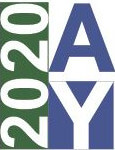The COVID-19 pandemic supports the importance of scientific research its applications, digitalization, distance-learning /-working, and open access material for knowledge-building, such as the Arctic Yearbook, when trying to solve global crisis wicked problems.

When we decided this year’s theme with its two-dimensional nature: 1) recognizing the global origin of climate change with the Arctic as a workshop for climate research; and 2) discussing possible responsibilities & problem-solving from the regional point of view – we did not know what was coming.
The just launched Arctic Yearbook 2020 includes 23 scholarly articles and 8 briefing notes & commentaries which widely cover the theme. Among others the peer-reviewed scholarly articles analyze climate change from science and policy viewpoints with emphasis on Arctic geopolitics and resources, discuss the role of the Arctic Council in climate change mitigation, and in particular have Indigenous and gender aspects of Arctic climate change in focus.
Altogether more than 190 scholarly peer-reviewed articles, and more than 130 briefing notes & commentaries in nine volumes (since 2012) makes the Yearbook a leading international Arctic peer-reviewed journal in a few fields (IR, Arctic shipping, state policies, Arctic Council). Due to an open access nature, these articles share Arctic social science research far beyond the halls of academia, receiving tens of thousands of reads.
The Arctic Yearbook’s application, peer review, and copy-edit processes are truly author centred. Many early-career scientists (post-docs, PhD candidates) and senior researchers appreciate the Yearbook due to the rich variety of themes, and its style, nature, fast peer-review process, as well as visibility on social media. The AY, published by UArctic TN on Geopolitics and Security, has run on volunteer efforts since its initiation. Big thanks to Arctic Portal’s invaluable role in hosting the website.
All in all, Arctic Yearbook consistently provides high quality, peer-reviewed articles from diverse researchers of Arctic social science and the humanities. It is an idea, initiative and institution, and issue-driven by experts that deserves to be recognized and used by Arctic communities, as well as a perfect platform on local – global for the current state of the world that deserves to be used by global audience.
- Lassi Heininen, Editor (E-mail: )
- Heather Exner-Pirot, Managing Editor (E-mail: )
- Justin Barnes, Assistant Editor (E-mail: )
Arctic Yearbook 2020 Heininen, L., H. Exner-Pirot, & J. Barnes (eds.). (2020). Arctic Yearbook 2020. Akureyri Iceland:
Arctic Portal. Available from https://www.arcticyearbook.com
ISSN 2298–2418
